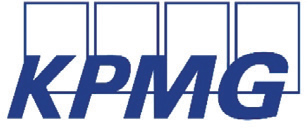The latest VAT developments at the CJEU
David Duffy discusses some of the latest VAT judgments from the Court of Justice of the EU (“CJEU”) in this month’s VAT Matters.

When is VAT due on instalment payments?
In case C-324/20, a German business supplied services in relation to a property sale in 2012 but agreed with the customer that the fee would be payable in instalments over 5 years. The supplier accounted for VAT when the invoices for each instalment were issued but the German tax authorities argued that VAT was due on the total fee at the time when the service was supplied in 2012. The CJEU confirmed that in this case VAT was due on the total fee when the service was supplied and not when the instalments became due. While in certain circumstances VAT is due on the date the payment become dues, the CJEU decided that this applies where there is a continuous or successive supply of services and not to once off supplies of services, as was the case here. The CJEU also confirmed that the supplier could not claim VAT bad debt relief on the instalments prior to them becoming due as the instalment arrangement had been agreed with customer. The judgment highlights the importance of analysing the nature of the service to determine when VAT is due. The default rule is that VAT becomes due when a good or service is supplied, or in cases where a VAT invoice is required to be issued, on the earlier of the date of issue of the invoice or the latest date by which the invoice should be issued (usually the 15th day of the month following the supply). However, exceptions can arise for continuous services (e.g., a lease) or if the taxpayer qualifies for the cash-receipts basis of accounting for VAT.
Input VAT recovery on invalid invoice
The Ferimet (C-281/20) case concerned a Spanish company’s right to deduct VAT on the purchase of scrap metal, which (as in Ireland) is subject to a reverse charge VAT in Spain. Ferimet, the purchaser of the metal, prepared a self-bill invoice for the purchase. However, the Spanish tax authorities denied Ferimet’s VAT claim on the purchase because that the supplier’s name on the invoice was incorrect. The judgment indicates that the name of the real supplier of the metal was deliberately concealed, although it is not entirely clear if this was concealed by Feirmet or the supplier and whether there was linked to fraudulent activity. The CJEU found that the Spanish authorities were entitled to deny the input VAT claim as the invoice did not allow them to confirm that the goods were supplied by a taxable person, which is a substantive condition for input VAT recovery. We expect that the judgment was influenced by the supplier’s identity being deliberately concealed. We have seen other cases where the CJEU has allowed a VAT input credit to be taken where certain technical details on an invoice are missing or, in the case of reverse charge purchases, an invoice has not been received, provided the substantive conditions for VAT recovery are met. However, the CJEU has generally taken a restrictive approach in cases of deliberate or fraudulent activity. This emphasises the importance for businesses of taking steps to know and understand who their trading counterparties are, as they can be held liable for the other parties’ VAT in cases where they knew or should have known of the existence of fraud.
Electronic VAT Refund (“EVR”) claims
EVR is the mechanism by which an EU business can reclaim VAT incurred in another EU Member State where they are not VAT registered. The process for reclaiming such VAT can be difficult as tax authorities usually require detailed information to support a claim. There have been a number of recent CJEU cases on taxpayers’ right and obligations in these circumstances.
In CHEP Equipment Pooling (C-396/20), a claim was submitted to the Hungarian tax authorities but there were discrepancies between the VAT amounts claimed and those included on the invoices supporting the claim. The tax authorities reduced the claim based on certain overstatements without allowing the applicant the opportunity to increase the claim for certain understatements. The CJEU held that the tax authorities should have given the applicant an opportunity to rectify the errors in the refund claim without a new claim being required. Accordingly, it found that the approach adopted by the tax authorities was a disproportionate response to the error made by the applicant.
In Wilo Salmson France (C-80/20), a claim was submitted by a French company to the Romanian tax authorities in 2012. The claim was rejected for various reasons. In 2015, the French company received reissued invoices from the supplier for the 2012 supply and submitted a new reclaim. This claim was also rejected by the Romanian authorities as it was out of time. While the CJEU has previously confirmed that Member States cannot reject EVR claims where the invoices submitted satisfy the substantive conditions for reclaiming VAT or where an invoice charging VAT is first received in a later period to the actual supply, in this case, the CJEU supported the rejection of the claim based on it being out of time. The reissue of the invoices in 2015 did not allow a new claim to be submitted at that time.

